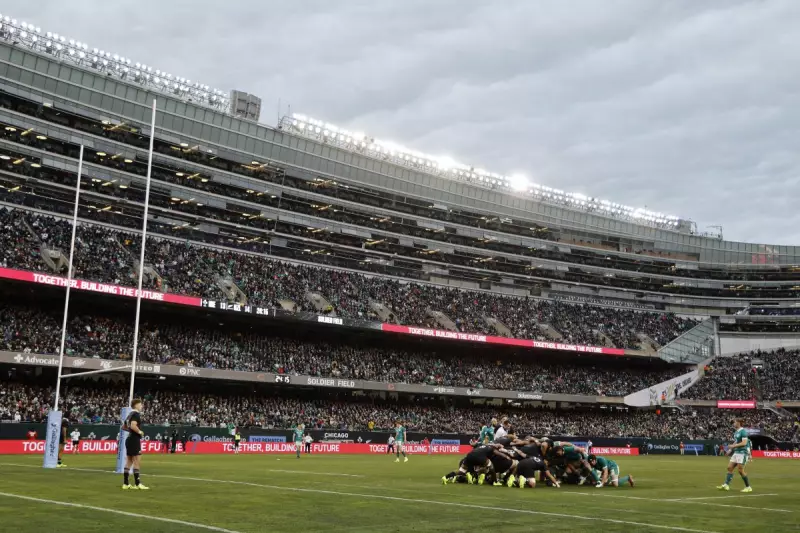
A former England rugby captain has called for a radical shake-up of the Six Nations championship, proposing that some matches should be staged in the United States to capitalise on the sport's growth potential.
Ollie Phillips, the ex-England Sevens skipper, agrees with recent suggestions that the tournament should look across the Atlantic, but with one major caveat: England fixtures must remain in Europe, while Ireland should be the team most frequently making the trip.
The American Opportunity
Phillips points to the successful, if imperfect, spectacle of Ireland's historic victory over New Zealand at Soldier Field in Chicago as a blueprint. He acknowledges the game itself was "pretty dire" and the pitch condition was poor, but believes it highlighted the significant opportunity that exists in the United States.
This push comes at a critical time. America is set to host the men's Rugby World Cup in 2031 and the women's edition in 2033. However, the recent 85-0 demolition of the US men's team by Scotland at Murrayfield raises serious questions about the nation's readiness to be competitive on the world stage.
These concerns have prompted World Rugby's chief executive, Alan Gilpin, to publicly question whether regular, competitive Six Nations fixtures should be hosted in the US to help build the sport's profile.
Why Ireland, Not England?
Phillips presents a clear argument for why Ireland is the ideal candidate for Stateside games. He states that while England is not a superior side, the commercial and cultural logic points towards the Irish team.
The key factor is heritage. Phillips notes that millions of Americans proudly tap into their Irish ancestry, a connection exemplified by figures like former President Joe Biden. This creates a natural and passionate audience that could be harnessed to foster rugby's growth.
Similarly, he suggests that other nations like Scotland, with ties to figures such as President Trump, and Italy also have substantial built-in markets in the US.
For Ireland specifically, the move makes commercial sense. The team appears to have outgrown its 52,000-capacity Aviva Stadium in Dublin, and their fans are already accustomed to seeing their star players perform together in the provincial teams. Taking a game to a major US city could be a revolutionary financial opportunity.
A Blueprint for the Future
Phillips outlines a potential strategy for implementing this transatlantic vision. He suggests that in a biennial season where Ireland plays three home Six Nations fixtures, one of those matches could be relocated to a US city like Chicago, New York, or Florida.
This would mean that one in every five of Ireland's home matches over a two-year cycle would be played away from Dublin.
He acknowledges the risk of disappointing home fans but believes the potential to attract a massive new audience justifies the experiment. For a more radical approach, Phillips even proposes that the three Celtic nations—Ireland, Wales, and Scotland—could form an agreement where two of them face each other in the US each year.
With rugby's well-documented financial challenges, Phillips concludes that the Six Nations, as a rare commercial success story, must be bold and exploit its unique position to secure the sport's future.





